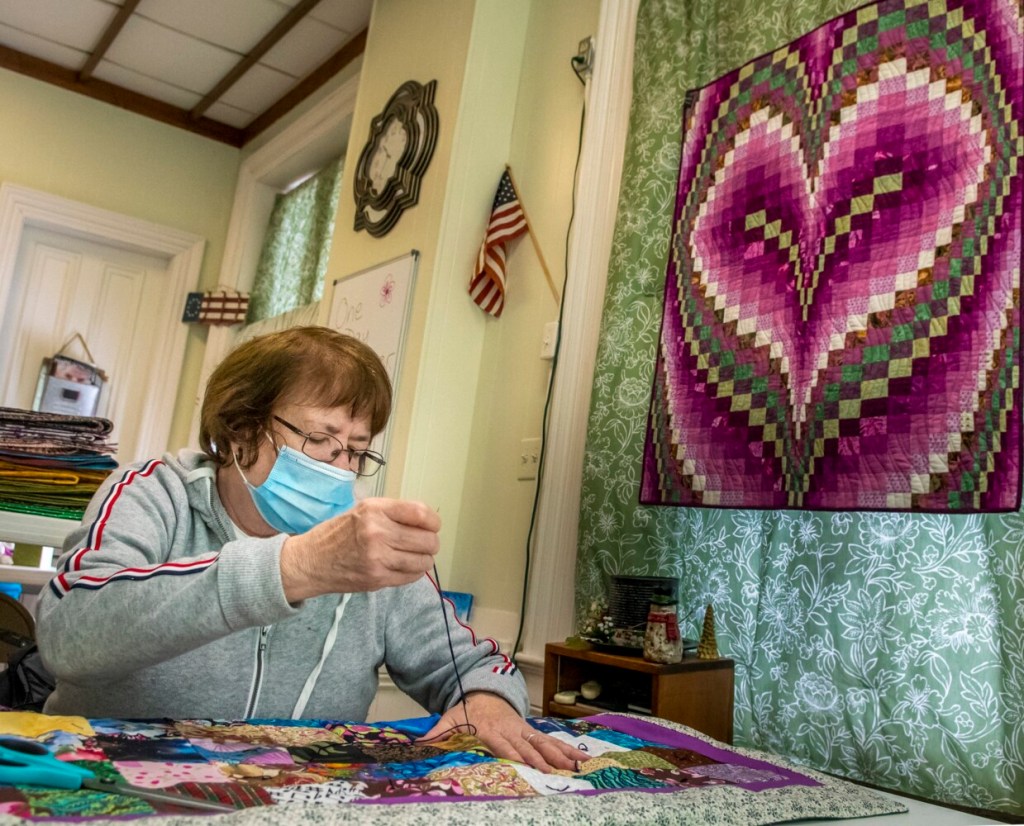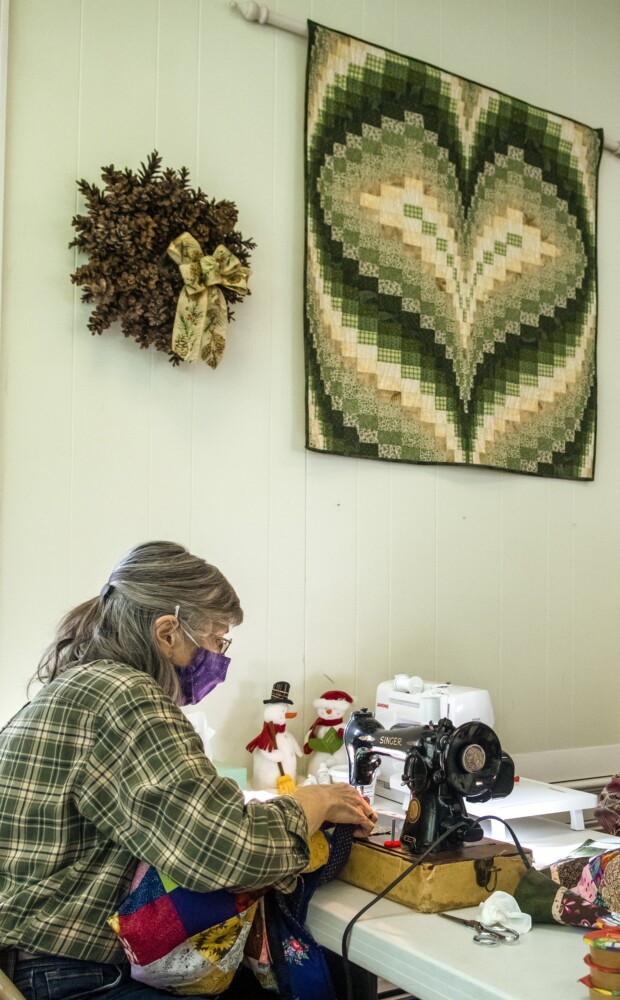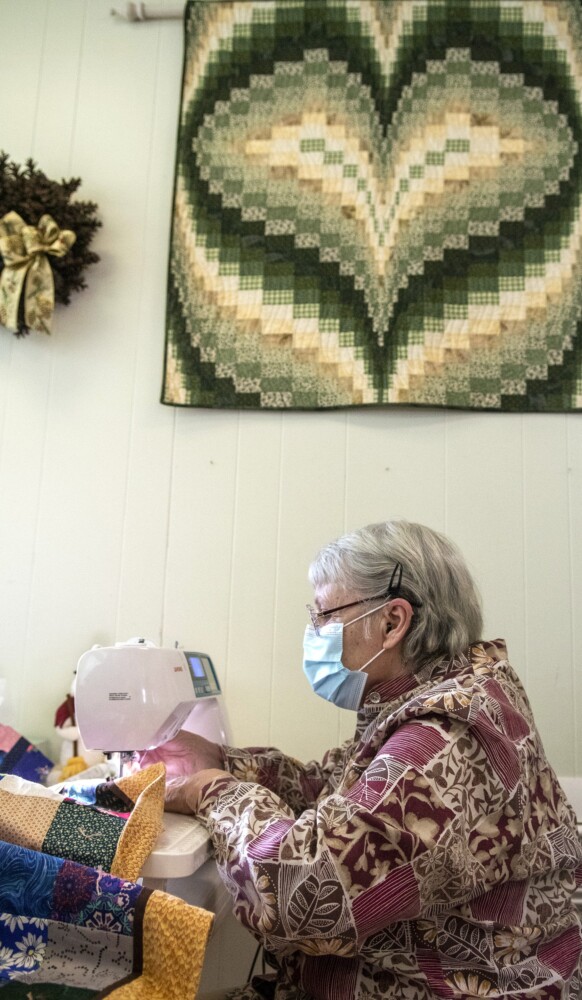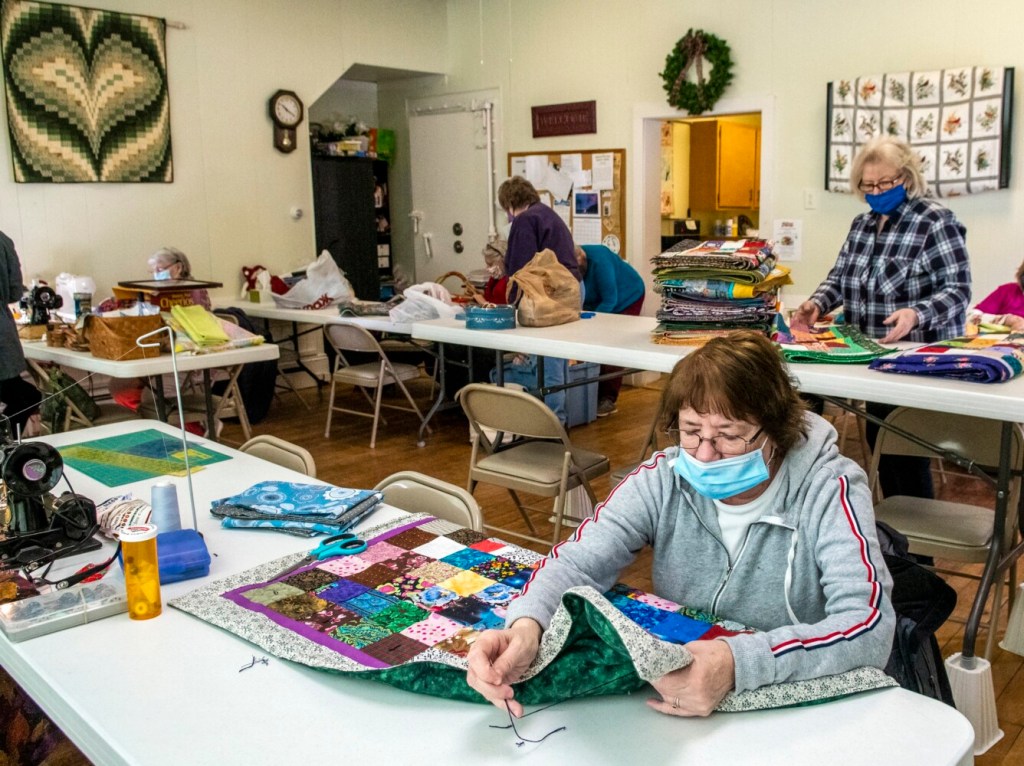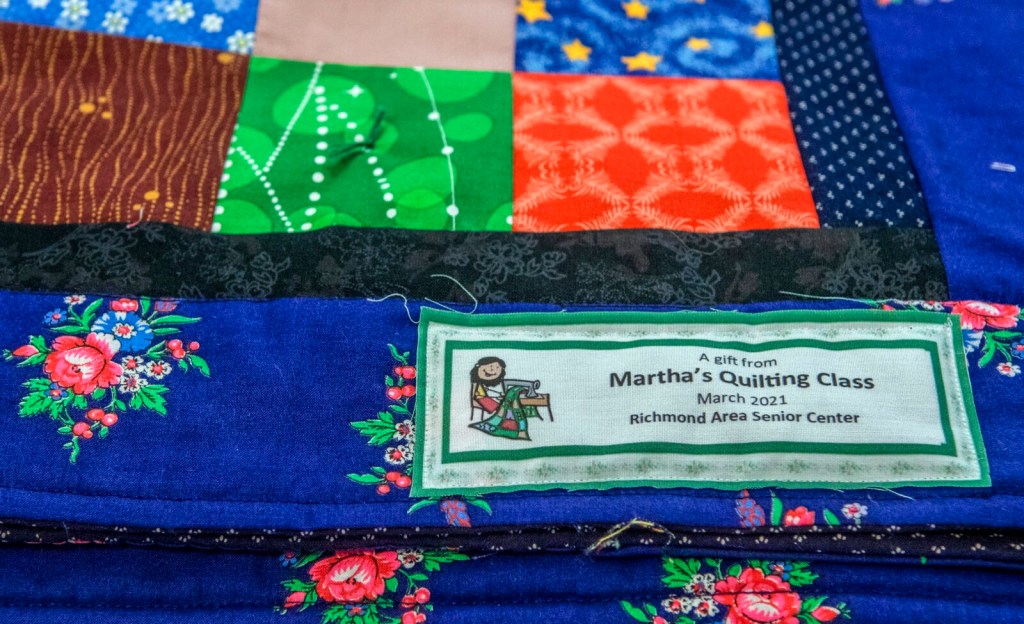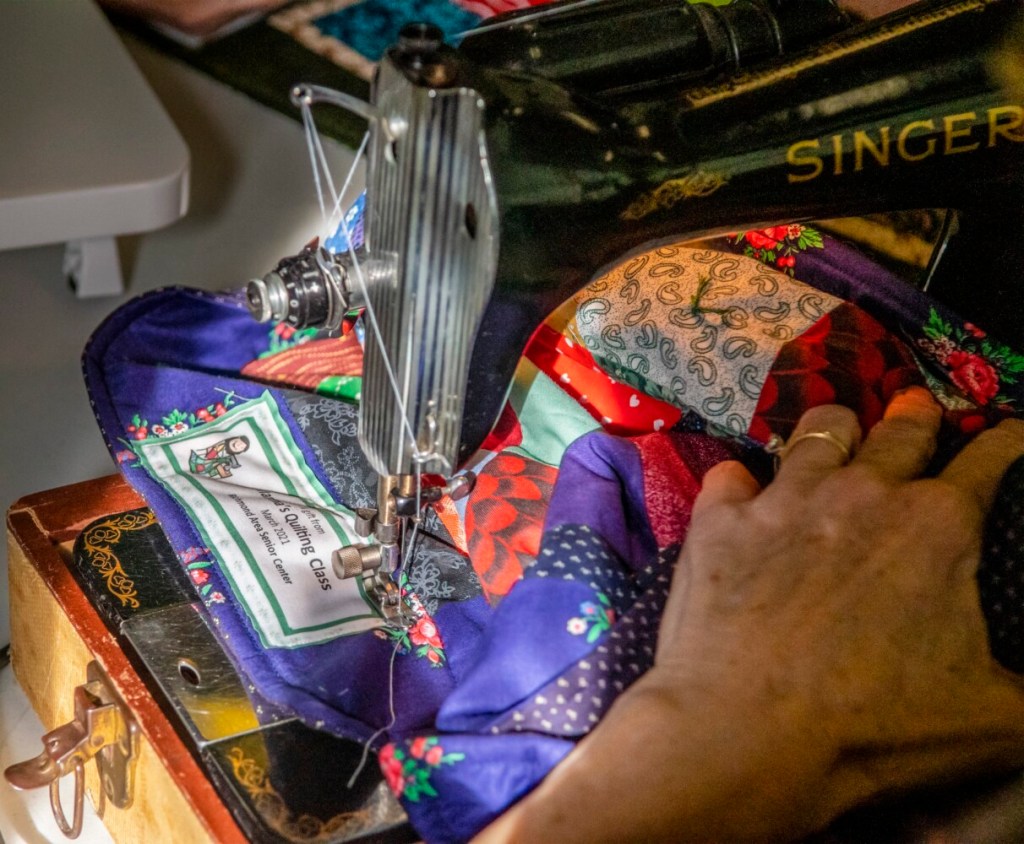RICHMOND — Stacks of colorful, patterned fabric filled tables on a recent Tuesday morning at the Richmond Area Senior Center, as busy hands worked to finish lap quilts on which women at the center have been working since December.

Martha Bangs sews a label last Tuesday onto one of the quilts her students made during a Martha’s Quilting Class at the Richmond Area Senior Center at 314 Front St. The group has made several lap quilts it is donating to Richmond Eldercare residents. Joe Phelan/Kennebec Journal Buy this Photo
Martha Bangs gave each of the eight members of her quilting class a different task as they worked to finish the quilts they plan to donate soon to residents at Richmond Eldercare.
The senior center decided to make and donate the quilts after seeing some of the residents using bathrobes and other items to keep warm. Members of the quilting class will be allowed to donate the quilts if they wear masks and are socially distanced.
Joann Hall tacked a quilt together, while Roseann Cochrane sewed on the finishing touch: A tag that read “Martha’s Quitting Class.” By 11 a.m., their work had come to an end with the women having completed 18 quilts, two more than their goal.
“A bunch of people wanted to learn how to quilt,” Bangs said. “I showed them how to do something simple and it evolved from there.”
Bangs, who teaches the class from 8 a.m. to 11 a.m. on Tuesdays at the Richmond Area Senior Center at 314 Front St., has quilted for nearly 40 years. Her mother taught her when she was young, and Bangs first started by making clothes for her dolls. Later, she made clothes for herself while in college.

Roseann Cochrane sews a label last Tuesday onto one of the quilts students made during a Martha’s Quilting Class at the Richmond Area Senior Center at 314 Front St. The group has made several lap quilts it is donating to Richmond Eldercare residents. Joe Phelan/Kennebec Journal Buy this Photo
She was brought in by Laurie Sanders, senior director of the center, to teach the other women after hearing there was an interest. Some women already knew how to quilt, while others, including Cochrane and Hall, were just learning.
“It was difficult,” Cochrane said. “I made a lot of mistakes.”
Bangs said although Cochrane had made mistakes and might have been unnecessarily embarrassed by them, the women tried to “keep her laughing” through the process.
“When I did it successfully, I was like, ‘Wow, it looks really good,'” Cochrane said.
A quilt is made by sewing patterns together, according to Bangs. A smaller grid of patterns is made and then attached to a larger grid.
It can be challenging, but the quilting process allows those at the center to work collaboratively. Each can work on a different part of a quilt or on a different method of putting the quilt together.
Teaching the women to quilt was challenging, Bangs said, and those who had quilted before still had to learn how to do new patterns.
“It wasn’t that easy,” Bangs said. “People would trickle in at different times of the day.”
Cochrane said Bangs would have to go over the directions multiple times, and sometimes had to provide one-on-one instruction to those who needed extra help or had missed a lesson.
Past projects have included a king-size quilt that was sold at raffle for $535, and table runners for Thanksgiving and Christmas.
The women at the center have also made their own projects. Janet Clement, for example, made a quilt she donated to the Dresden Public Library.
“It needs a good home,” she said. “Kids like color and they’d appreciate it.”

Joann Hall tacks a quilt last Tuesday during a Martha’s Quilting Class at the Richmond Area Senior Center at 314 Front St. Tacking, which holds the top and bottom halves together with knots, is one of the last steps in the quilting process. Joe Phelan/Kennebec Journal Buy this Photo
News of the quilting club has brought donations of fabric and sewing machines. The club has not had to buy any materials because of the generosity of town residents, who have also three sewing machines.
And the club even has enough quilting patterns and fabric for its next project.
And while the group is unsure if the next project will generate more donations, each quilt helps make the women better at the craft, according to Bangs.
“I haven’t told them yet, but I think we are going to do a ‘shoe string’ pattern,” she said. “It’s not that easy. It can be tricky at times”
Send questions/comments to the editors.


